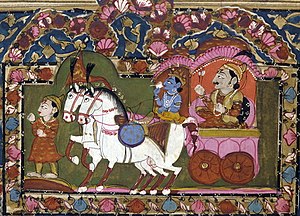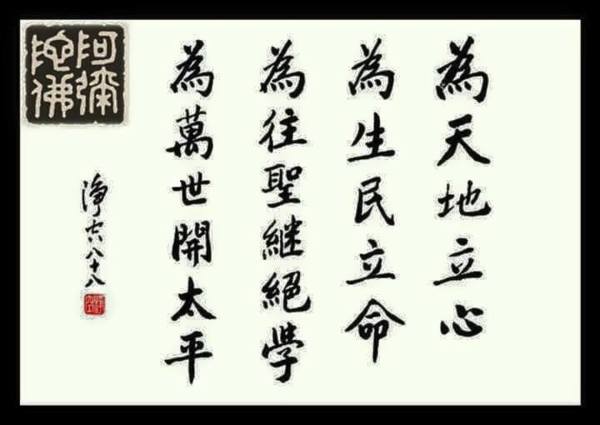薄伽梵歌是印度重要經典. 在一場戰爭之前, 面對人世衝突, 字字樞機的對話.
麥芽糖聽聞此經, 尚未仔細研讀.
師長指示: 此經精妙深微, 是可以仔細研讀, 終生受用的好經典.
今此開欄, 有心得再續.
http://en.wikipedia.org/wiki/Bhagavad_Gita

薄伽梵歌(梵語: भगवद् गीता 轉寫:Bhagavad Gīta, 字面意思是「被神保佑者(Krishna)的歌」),學術界認為它成書于公元前五世紀到公元前二世紀,是印度教的重要經典,印度兩大史詩之一的「摩訶婆羅多(Mahabharata)」的一部分(位於Bhisma-Parva章節的23–40),也簡稱為Gita。它是唯一一本記錄神而不是神的代言人,或者先知的言論的經典。也有人譯為「博伽梵歌」。
薄伽梵歌顧名思義是一段詩歌,描述了阿周那與黑天之間在俱盧之野戰爭前,在戰場上的對話。當時的阿周那看見許多親戚朋友都在敵對陣營,感到難過而困惑,因此向正在充當他馬車夫的黑天尋求指導。黑天對阿周那的勸導採用了許多印度教基本的宗教信念與概念,而且他也向阿周那展現他與宇宙為一體的神身,最終成功說服阿周那參戰。
The Bhagavad Gita (Sanskrit भगवद्गीता, Bhagavad Gītā, "Song of God") is a Sanskrit epic, revered as one of the sacred and highly esteemed scriptures of Hinduism.[1][2] The Bhagavad Gita text is a section from the chapter Bhishma Parva of the Mahabharata epic, comprising 700 verses.[3] Krishna, as the speaker of the Bhagavad Gita, is referred to within as Bhagavan[4] (the divine one). The verses themselves, using the range and style of Sanskrit meter (chhandas) with similes and metaphors, are written in a poetic form that is traditionally chanted; hence the title, which translates to "the Song of the Divine One". The Bhagavad Gita is revered as sacred by Hindu traditions,[5] and especially so by Vaishnavas (followers of Vishnu-Krishna). It is commonly referred to as The Gita.
The content of the Gita is the conversation between Krishna and Arjuna taking place on the battlefield before the start of the Kurukshetra war. Responding to Arjuna's confusion and moral dilemma, Krishna explains to Arjuna his duties as a warrior and prince and elaborates on different Yogic[6] and Vedantic philosophies, with examples and analogies. This has led to the Gita often being described as a concise guide to Hindu philosophy and also as a practical, self-contained guide to life. Other noted experts have described it as a lighthouse of eternal wisdom that has the ability to inspire any man or woman to supreme accomplishment and enlightenment. [7] During the discourse, Krishna reveals his identity as the Supreme Being Himself (Svayam bhagavan), blessing Arjuna with an awe-inspiring vision of his divine universal form.



本文於 修改第 2 次